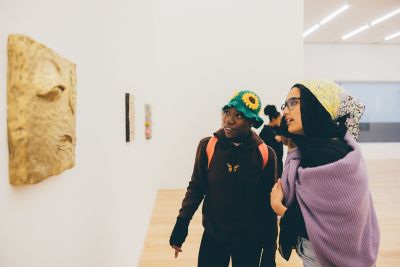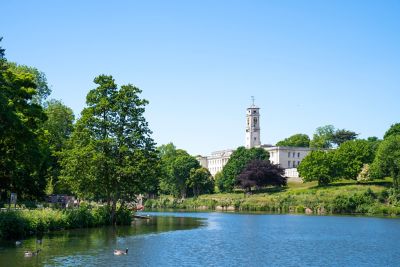For full details including fees for part-time students and reduced fees during your time studying abroad or on placement (where applicable), see our fees page.
If you are a student from the EU, EEA or Switzerland, you may be asked to complete a fee status questionnaire and your answers will be assessed using guidance issued by the UK Council for International Student Affairs (UKCISA) .
Additional costs
All students will need at least one device to approve security access requests via Multi-Factor Authentication (MFA). We also recommend students have a suitable laptop to work both on and off-campus. For more information, please check the equipment advice.
Essential course materials are supplied.
Books
You'll be able to access most of the books you’ll need through our libraries, though you may wish to buy your own copies of core texts.
A limited number of modules may have compulsory texts which you are required to buy. We recommend that you budget £100 per year for books, but this figure will vary according to which modules you take.
The Blackwell's bookshop on campus offers a year-round price match against any of the main retailers (for example Amazon, Waterstones, WH Smith). They also offer second-hand books, as students from previous years sell their copies back to the bookshop.
Art History Field trips
We cover most costs for the European field trip except food and travel when abroad.
Field trips that complement other modules are optional.
You will usually arrange your own transport and pay any entry charges.
Volunteering and placements
For volunteering and placements, such as work experience and teaching in schools, you will need to pay for transport and refreshments.
Scholarships and bursaries
Faculty of Arts Alumni scholarships
Our Alumni Scholarships provide support with essential living costs to eligible students. Find out more about eligibility and how to apply.
University of Nottingham bursaries and scholarships
The University offers a wide range of funds that can provide you with an additional source of non-repayable financial help. See our bursaries and scholarships page for what's available.
International students
We offer a range of international undergraduate scholarships for high-achieving international scholars who can put their Nottingham degree to great use in their careers.
Tuition fees 2025/26 (UK undergraduate students)
The UK Government has confirmed that the maximum tuition fee for full time UK undergraduate and Initial Teacher Training students studying in England will increase to £9,535 for the 2025/26 academic year. The university will charge the maximum approved fee, which is an increase of £285 per year. For more information, please read our FAQs.
For full details including fees for part-time students and reduced fees during your time studying abroad or on placement (where applicable), see our fees page.
Additional costs
All students will need at least one device to approve security access requests via Multi-Factor Authentication (MFA). We also recommend students have a suitable laptop to work both on and off-campus. For more information, please check the equipment advice.
Essential course materials are supplied.
Books
You'll be able to access most of the books you’ll need through our libraries, though you may wish to buy your own copies of core texts.
A limited number of modules may have compulsory texts which you are required to buy. We recommend that you budget £100 per year for books, but this figure will vary according to which modules you take.
The Blackwell's bookshop on campus offers a year-round price match against any of the main retailers (for example Amazon, Waterstones, WH Smith). They also offer second-hand books, as students from previous years sell their copies back to the bookshop.
Field trips
We cover most costs for the European field trip except food and travel when abroad. Field trips that complement other modules are optional. You will usually arrange your own transport and pay any entry charges.
Volunteering and placements
For volunteering and placements, such as work experience and teaching in schools, you will need to pay for transport and refreshments.
Scholarships and bursaries
Faculty of Arts Alumni Scholarships
Our Alumni Scholarships provide support with essential living costs to eligible students. Find out more about eligibility and how to apply.
University of Nottingham bursaries and scholarships
The University offers a wide range of funds that can provide you with an additional source of non-repayable financial help. See our bursaries and scholarships page for what's available.
Home students*
Over one third of our UK students receive our means-tested core bursary, worth up to £1,000 a year. Full details can be found on our financial support pages.
* A 'home' student is one who meets certain UK residence criteria. These are the same criteria as apply to eligibility for home funding from Student Finance.









